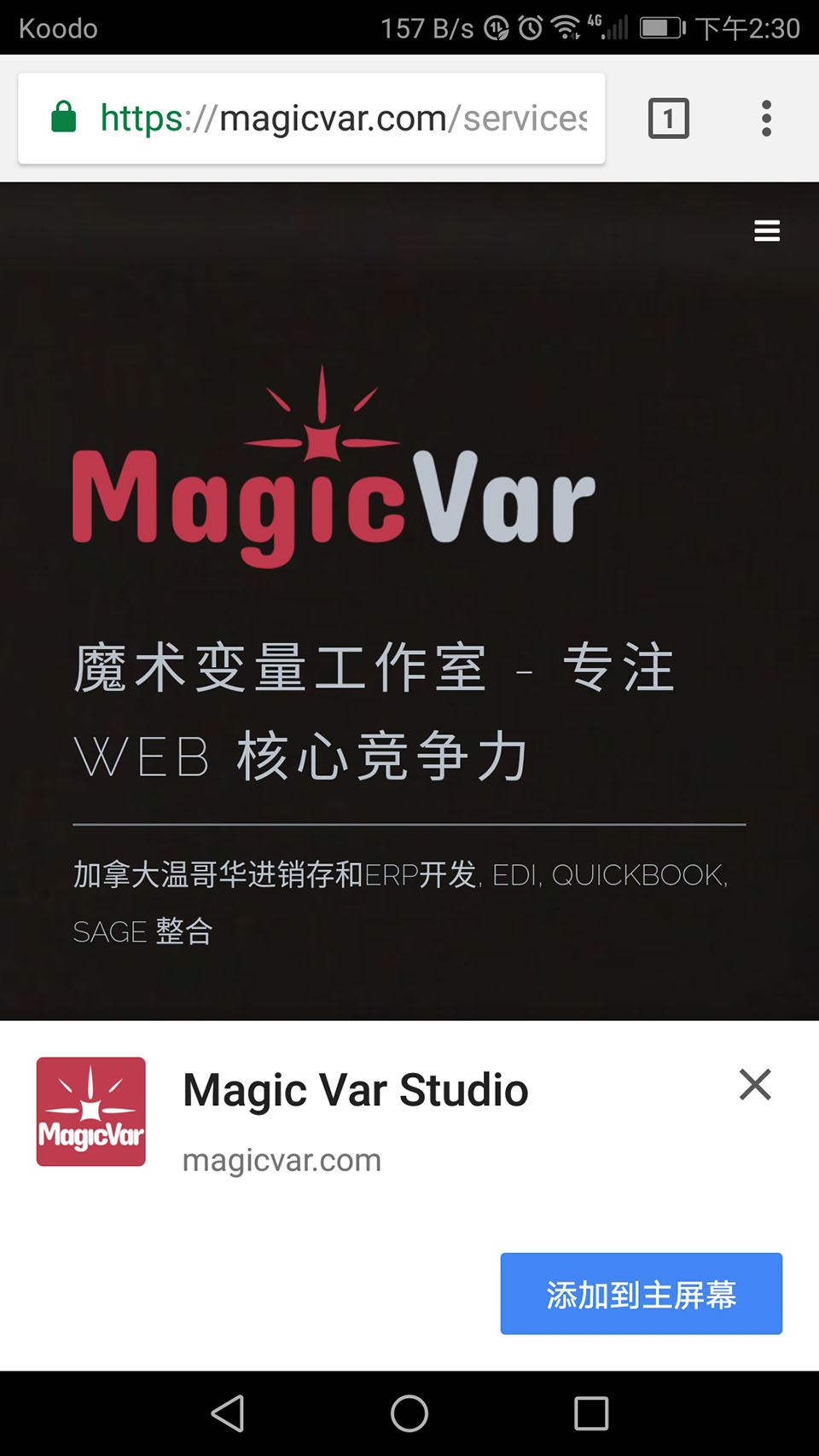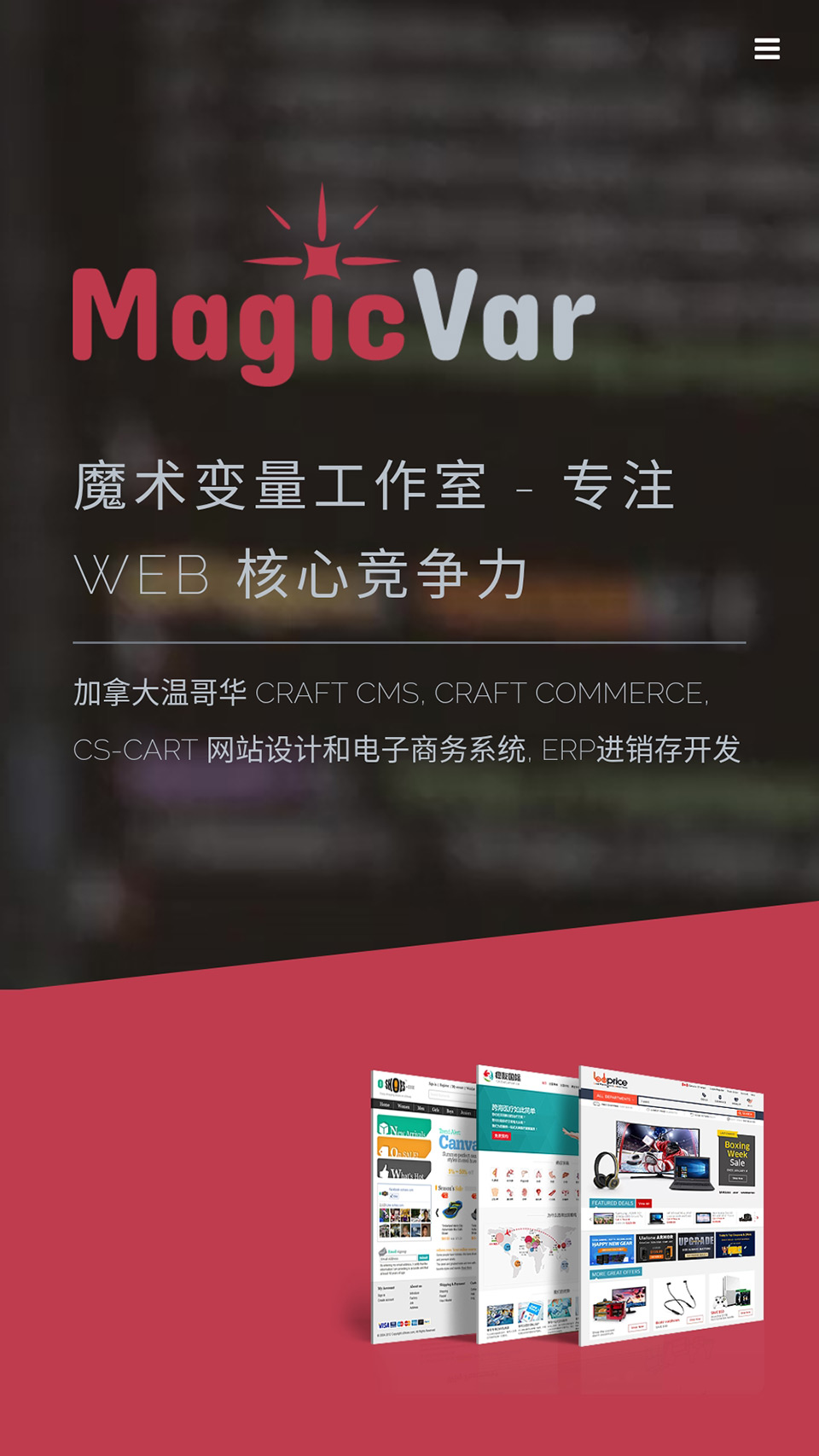Developing Progressive Web Apps (PWA) based on Craft CMS
PWA (Progressive Web Apps) is the Chinese name for Progressive Web Apps, and since Google launched this technology in 2015, PWA technology has become quite mature and widespread, and most of the famous enterprise websites have already supported or are starting to support PWA to rapidly implement and iterate mobile app entry. Take Twitter as an example, after Twitter Lite supported PWA, the average user dwell time increased by 65%, the number of tweets sent from the website increased by 75%, and the bounce rate decreased by 20%. It has been proven by a wide range of statistics that enterprise and brand websites that support PWA technology significantly improve the frequency and length of user visits, which effectively drives business efficiency.
The core technologies include App Manifest, Service Worker, Web Push, and so on. The core technologies include App Manifest, Service Worker, Web Push, etc. Simply put, PWAs combine the strengths of both the Web and App: incremental, responsive, offline, app-like, instantly updated, secure, searchable by search engines, pushable, installable, and linkable.
Our studio website, MagicVar.com, already supports PWA technology, which automatically prompts users to create a web app to their mobile desktop as soon as they visit our site for the first time through their mobile browser. It is different from creating a mobile desktop shortcut, which is just a URL connection that opens a web browser to access the mobile version of the site when triggered by a click; the PWA technology enables the Web App to have the experience of a real app and still be able to use the Web App to browse queries to be automatically cached data even if the phone is not connected to the internet, see below.

MagicVar.com is a template based on Craft CMS 3. 100% flexible and a Swiss Army knife for people with source code neatness OCD, the benefits of choosing Craft CMS for our PWA are substantial: first and foremost, genetically based SEO friendliness, extremely fast front-end rendering, very high access speeds, excellent site security and horizontal and vertical scaling without resorting to third-party plugins. Anyone with a little web development experience knows that too many plugins and passive attachment features can make a website a mess, difficult to maintain and extremely vulnerable to hackers.

Tags
Left Blogs List
-
02/02/2025A Comparative Case Study: Open-Source Free Shopware 6 vs. Shopify Independent Store
-
08/08/2021Latest customer cases based on Shopware 6 development
-
03/04/2021Launch Online Grant Program
-
12/25/2020Vancouver Japanese cosmetics industry APP development case
-
10/11/2020Shopware 6 Simplified Chinese Language Pack and Traditional Chinese Language Pack are now available.
-
07/20/2020First draft for the North American and Canadian versions of the WeChat app, Mini-program and App
-
05/24/2020Canadian Wechat App Development Case, Vancouver Wechat Mini-program Development Case
-
04/25/2020Wechat Microstore, Wecha Mini-program and APP in Vancouver Canada
-
04/12/2020Meet CS-Cart 4.11.1 with Warehouses and Other Improvements
-
08/13/2018Developing Progressive Web Apps (PWA) based on Craft CMS
-
07/05/2018基于 CS-CART 的 CHAOLIFE 加拿大潮生活微网站
-
07/04/2018[电子商务]中文易购鲜生鲜电商网站
-
05/28/2018是否该选择 Magento2 作为你的电商平台?
-
05/27/2018基于CS-Cart开发的电子产品模板案例
-
05/27/2018加拿大天然植物健康保健食品CS-Cart模板案例
-
05/26/2018CS-Cart 和 Multi-Vendor 4.7.4 现在支持 GDPR 了,请尽快升级!
-
05/26/2018Infographic: Interesting Facts about eBay
-
05/26/2018关于 Craft Commerce 2 Beta 的最新消息
-
05/26/2018amazon-vancouver-ecommerce-jobs




